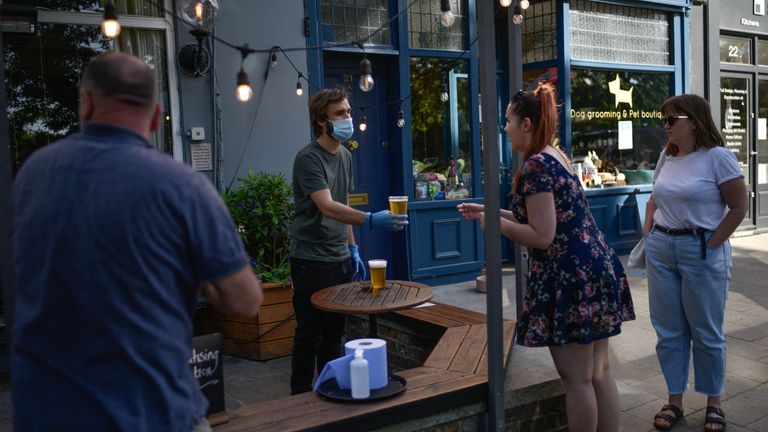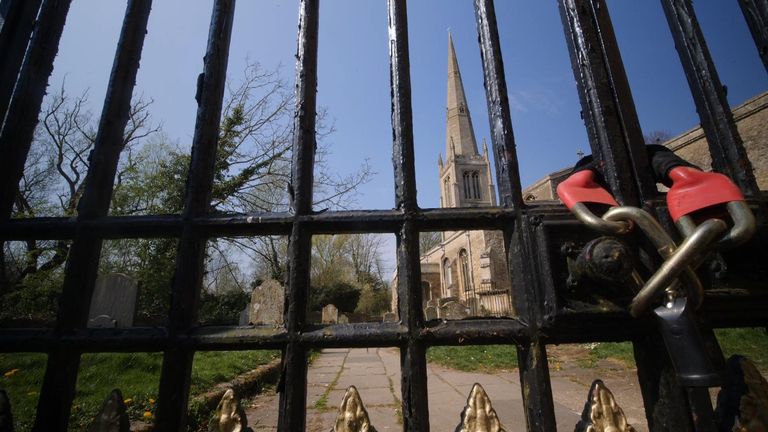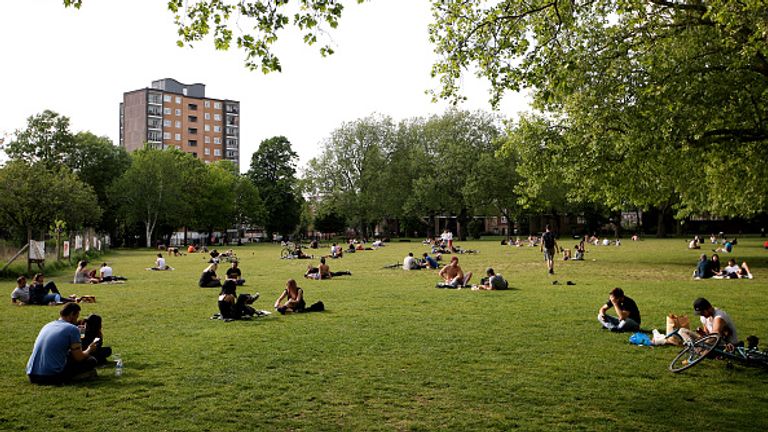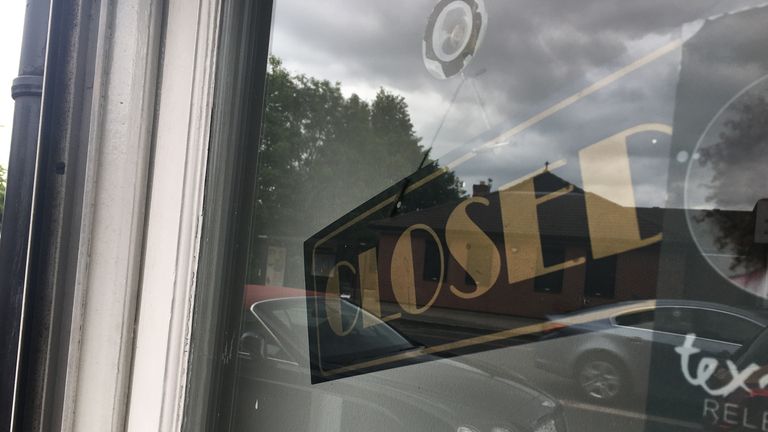Coronavirus lockdown: What you can and cannot do from Monday
Lockdown restrictions are continuing to ease across the UK as the number of coronavirus infections drops.
It has now been 12 weeks since Prime Minister Boris Johnson announced the measures in March – drastically changing our lives.
However, the coronavirus rules in England, Scotland, Wales and Northern Ireland differ slightly from each other in terms of what people can and cannot do.
A bulk of new changes come into force from Monday 15 June.
ENGLAND
Which shops are reopening?
A variety of non-essential shops and services can reopen under conditions that they adhere to social distancing measures.
These include the following:
- Fashion shops
- Charity shops
- Betting shops and arcades
- Tailors, dress fitters and fashion designers
- Auction houses
- Antique stores
- Retail art galleries
- Photography studios
- Gift shops and retail spaces in theatres, museums, libraries, heritage sites and tourism sites
- Mobile phone stores
- Indoor markets
- Craft fairs
- Similar types of retail
However, other businesses – including pubs, restaurants and hairdressers – will remain shut until at least July.
What about zoos?
Zoos and safari parks can reopen, but attractions will not be allowed to reopen indoor exhibitions such as reptile houses.
They must also ensure amenities including cafes are takeaway only to comply with social distancing guidelines.
Outdoor cinemas
They too can reopen so long as social distancing measures are implemented by venues.
In England, these are usually pop-up screenings on tour, for which people can buy tickets online.
Some are American-style drive-in cinemas such as The Luna Cinema, while at others such as The Free Range Range Film Club across London, cinemagoers are allocated socially distanced spaces from which they can kick back and watch films on giant screens.
Secondary schools
They can start reopening, with pupils in Year 10 and 12 able to get some face-to-face time with teachers before the summer holidays.
Mr Johnson said the move would help students “prepare for exams next year with up to a quarter of these students in at any point”.
Plans for all pupils in England to return to primary school this term before the summer holidays have been dropped after the government conceded social distancing would be a challenge for some schools.
Some primary schools have already reopened for Reception, Year 1 and Year 6 students, with class sizes limited to 15 pupils, desks spaced as far apart as possible and outdoor spaces utilised in keeping with the government’s new guidance.
The Department for Education (DfE) guidelines advise schools to stagger break times, as well as drop-off and pick-up times, to reduce the number of pupils moving around.
Schools should also consider introducing one-way circulation, or placing a divider down the middle of corridors.
The advice also suggests nurseries and schools should remove soft furnishings and toys that are hard to clean – and try to keep children in the same small groups at all times each day.
Face masks
Face coverings will be mandatory on public transport.
Bus and train commuters in England could be refused travel if they fail to comply with the measures to help stop the spread of COVID-19 – or face a fine.
Face coverings can include scarves, a piece of cloth or a mask – and certain travellers, such as young children and people with disabilities or breathing difficulties, will be exempt.
Places of worship
Churches and other places of worship will be open for private, individual prayer where people can “reflect and pray” while adhering to social distancing rules.
However, worship groups, weddings and other services will still not be permitted.
It comes after a government task force with faith leaders was launched last month to develop a plan to enable the phased and safe reopening of religious buildings.
‘Support bubble’
Adults living alone, or single parents with children under 18, can now spend the night at another household and create a “support bubble”.
This is an attempt to make lockdown more bearable for those who have been cut off from friends and family since 23 March.
They can form a bubble with one other household which means they will effectively be treated as a single household for the purpose of the lockdown rules.
They can visit each other’s homes and stay overnight if they want. They will not have to observe the two-metre social distancing rule.
Can people switch between bubbles?
No, and while it does not matter where the two households are, officials have suggested people should stay local if possible.
Who benefits?
It means elderly people living alone could form a bubble with the household of an adult son or daughter, while single parents could link with their own parents to share childcare.
Couples who do not live together can also visit and stay with each other.
But…
If one half of a couple shares a flat or house with one or more other people, they can see their partner if they live alone. But if both partners share a home with other people, they cannot see each other.
If two grandparents live together in one household, they can only visit their children and grandchildren if their son or daughter is the only adult in his or her household.
If a grandparent lives alone and has two or more children who each live alone, they must choose between them.
What if someone develops coronavirus symptoms?
All members of the bubble must isolate themselves for 14 days.
Does the scheme apply to people who are shielding?
No, the relaxation does not apply to vulnerable people who are shielding.
Is the ‘support bubble’ scheme only in England?
A similar scheme has been introduced in Northern Ireland.
This allows a person who lives alone to visit someone else’s home, including staying overnight.
They do not qualify if they have a child or children living with them.
Last month, the PM gave an update on what restrictions would be lifted from 1 June, which included people gathering in groups of up to six people in public or private outdoor spaces and dental surgeries opening from 8 June.
You still cannot exercise in an indoor sports court, gym or leisure centre, or go swimming in a public pool.
Outdoor gyms and playgrounds are still off-limits, and you cannot share a private vehicle with someone from another household.
People are also not allowed to invite anyone other than close family or friends, and someone from the deceased’s household, to a funeral.
What could change in July?
Restaurants and hotels: 4 July is the earliest point at which “some of the hospitality industry and other public places” could reopen, the PM said, but only if “they are safe and enforce social distancing”.
Hairdressers: Foreign Secretary Dominic Raab told Sky News that salons and barbers will not reopen until 4 July “at the very earliest”.
Advice for over-70s
Those over 70 should continue to take particular care to minimise contact with others outside their household.
If they do go out, they should be careful to maintain distance from others and should comply with social distancing rules.
Anyone who has been advised to shield by the NHS or their GP, including those 70 and over, should continue to do this until at least the end of June.
Source: Read Full Article






